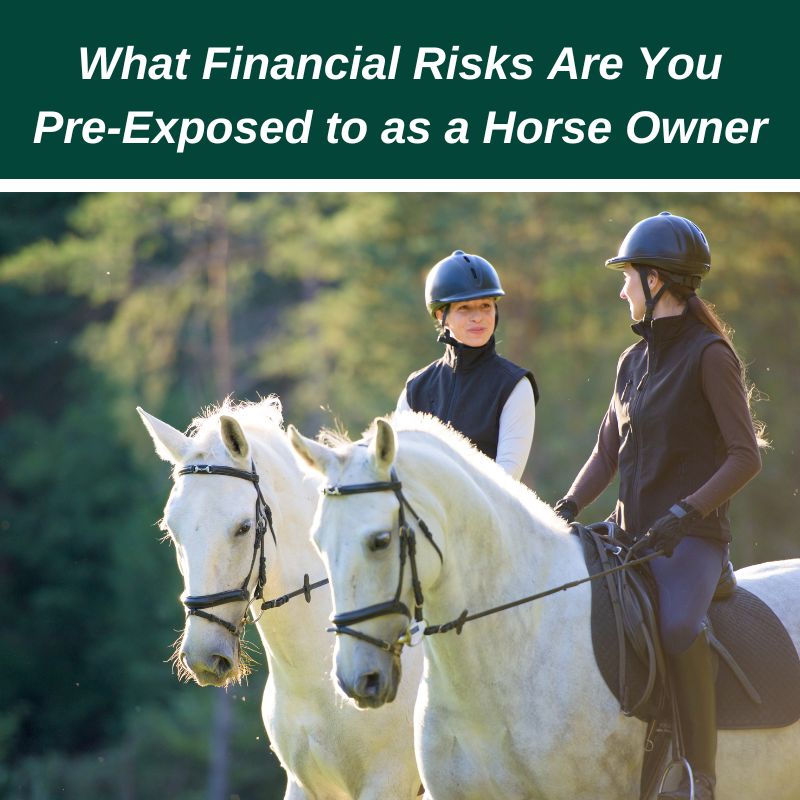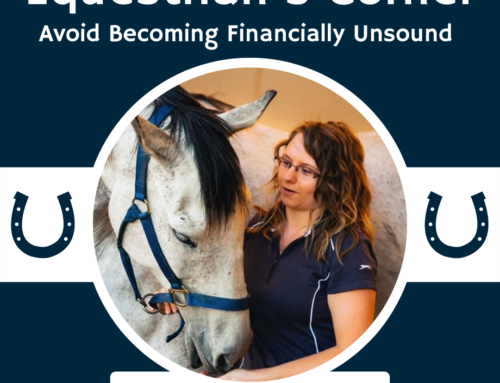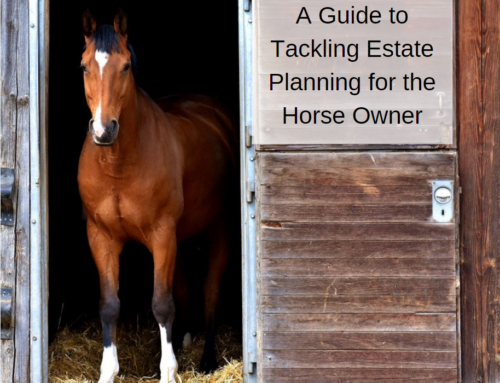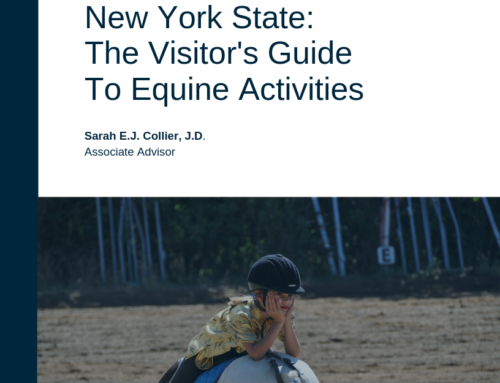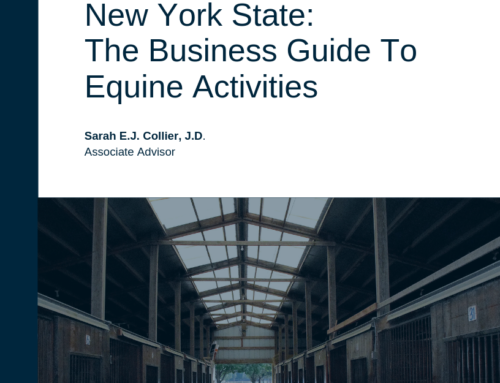While we know that we invite risk of injury as we mount up our “trusty” steed, your risk does not stop here. While no one wants to talk about it, these activities pose a risk to your financial security. Be aware that not addressing them could be detrimental to your financial goals.
Emergency Expenses
It is no doubt that horses are expensive, and some horses tend to be accident prone. Also, high performance or ageing horses often require frequent vet visits to keep them comfortable and moving. -But at what cost is this to you and your financial goals? What if the care of your horses far exceeds the care you take with your own personal finances? These are two tough questions to address, but sometimes you have to “eat that frog” and address it sooner rather than later such as during a true financial emergency.
At a minimum, I like to recommend establishing an emergency fund for you AND one for your equine friend. As a general rule, your emergency fund should be 3-6 months’ worth of “human” expenses. Separate from that should be an emergency fund for the care of your horse. This fund includes two parts: (1) 3-6 months’ worth of equine related expenses which may include boarding, routine maintenance, supplements and even training if you put your horse through regular training; and (2) at least $1,000 for potential emergency vet visits.
Advisor’s Tip: Placing your emergency savings funds into high yield accounts such as online savings accounts may offer competitive interest rates that are outside of your regular banking. This is particularly important to combat decrease in buying power due to inflation. Of course, do not forget to make sure the financial institution is FDIC Insured!
Insurance options that may insulate you from emergency veterinary expenses and diagnostics include obtaining major medical or surgery only insurance policies. These products can be expensive, and depending on several factors (age, use value of the horse, etc.) these types of products may not coincide with your goals. Other options include certain programs offered by feed/supplemental programs. Ones that come to mind are Colic Care™ from SmartPak or SUCCEED® Healthy Gut Commitment. These types of programs will reimburse you for expenses incurred up to a certain amount if you feed their products as directed and follow their requirements to a “T.” While these may be a good offering, remember they are a reimbursement program, which means you will need to pay for the surgery expenses upfront.
Personal Injury Claims
We as horse owners need to be very conscientious over who is around our horses. While there are inherent risks to working with and being around horses, this alone might not stop someone from suing you because of an injury caused by your horse. Incidents that occur when someone is leasing your horse, gratuitously allowing someone to ride or pet your horse and even trespassers on your property (think of it being an invited nuisance) could all potentially be risks you should insure against. Further, it may not be your friend who fell off your horse who is suing you, but in fact their insurance company looking to recoup their medical costs from the incident. Since even one lawsuit can be detrimental to your mental and financial well-being, it is important to have these conversations.
What is the best way to protect your life savings assets from these types of incidents? The answer to this is always “well, it depends.” When having these discussions with clients, I begin by asking questions such as: Where are the horses stabled? What type of activities do they participate in? Who is around their horses on a regular basis? This helps me gage the potential risks the individual may want to protect against. Often the conversation will lead to reviewing property and casualty insurance policies to review risks covered and liability limits. Depending on where they are in the figurative spectrum of risks, recommendations when working further with an insurance agent include the need for just a homeowner’s policy, or layering additional policies such as umbrella, equine excessive, farm or even more robust commercial policies. We may also recommend further discussions with an attorney to offer legal guidance on state laws and advice on legal instruments to further protect the horse owner’s financials from these risks.
While emergency expenses and personal injury claims are just two listed financial risks that horse owners may be pre-exposed to, these are just a few considerations to help minimize these risks. Contact me to discuss further what financial risks are pertinent to you and create a strategy on how to minimize these risks.
~Happy Trails!
*Any information is for illustrative purposes only, and is not intended to serve as investment, legal or tax advice since the availability and effectiveness of any strategy is dependent upon your individual facts and circumstances. Furthermore, we are not license insurance agents.


